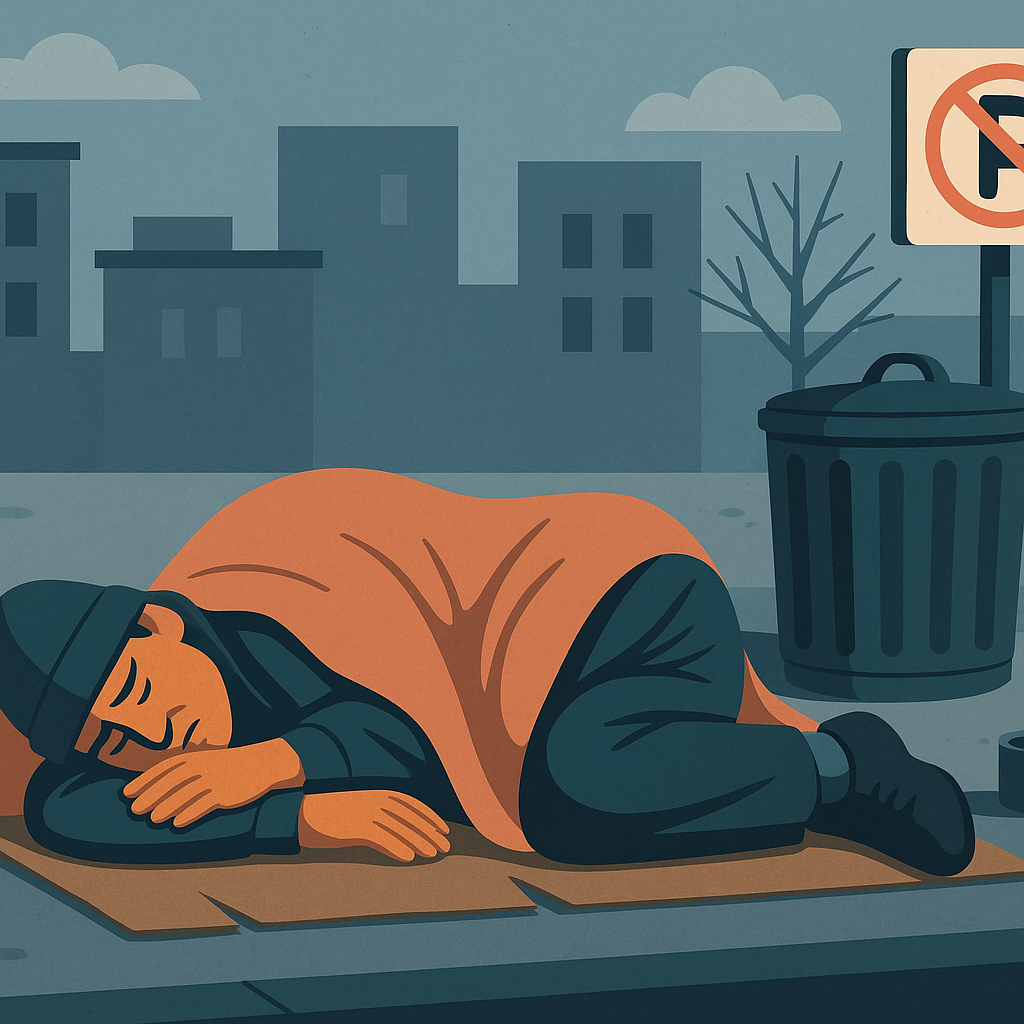A new report from the Center on Budget and Policy Priorities (CBPP) warns that President Donald Trump’s approach to addressing homelessness in Washington, D.C., risks worsening the crisis rather than solving it.
Trump announced on August 11 that he intends to take control of the city’s Metropolitan Police Department and clear homeless individuals from the streets. However, CBPP’s August 6 report, authored by Mari Castaldi, the think tank’s director of state housing policy, argues that policies criminalizing sleeping outdoors are both “cruel” and ineffective.
According to the report, forcibly removing people from public spaces often results in the loss of personal property, traumatic encounters with law enforcement, and criminal records or fines that make it harder to secure jobs or housing. “Communities implementing these practices actively hinder people from exiting homelessness, thus worsening, not solving, the nation’s homelessness crisis,” Castaldi wrote.
The analysis notes that since 2022, at least eight states have passed — and many more have considered — laws to ticket, fine, or jail people simply for lacking safe shelter. Additionally, more than 320 local ordinances penalizing outdoor sleeping have been introduced following the Supreme Court’s Grants Pass v. Johnson decision, which allowed such measures. Trump signed an executive order on July
24 making it easier for states and cities to remove homeless people from public spaces.
CBPP points to evidence from Chattanooga, Los Angeles, and national programs for veterans showing that when rental assistance and related services are well-funded, homelessness declines.
The report also criticizes policies promoted by the Cicero Institute, a think tank founded by Silicon Valley entrepreneur and Trump supporter Joe Lonsdale. Cicero argues that permanent supportive housing fuels demand for homelessness and supports “cronyism,” advocating instead for minimal shelter options and sanctioned encampments with services.
While Cicero maintains that increased spending has failed to reduce homelessness over the past two decades, CBPP and other advocacy groups see the issue as rooted in the affordable housing shortage. “Homelessness is solvable,” Castaldi wrote. “The way forward is not through punishing people for struggling under a flawed system, but through prioritizing supports that can end their homelessness or prevent it from occurring in the first place.”


